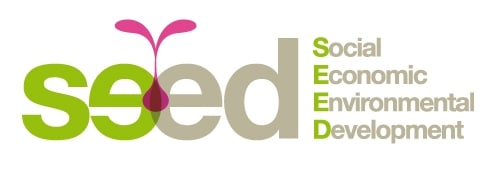Project SEED
Framework: Pakistan-Italian debt for development SWAP agreement
Donors: Government of Italy, Government of Pakistan
Period: 2009-2014
Focus Area: Central Karakorum National Park, Gilgit-Baltistan Province
Implementing Organization: Ev-K2-CNR Committee in collaboration with the Karakorum International University
Collaborative Agencies:
- AKRSP Baltistan
- Central Karakorum National Park Directorate (CKNP)
- Alpine Club Pakistan (ACP)
- WWF Pakistan
- Mountain Glacier and Protection Organization (MGPO)
- International Center for Integrated Mountain Development (ICIMOD)
- Pakistan Meteorological Department (PMD)
- ISIAO
- Politecnico di Milano
- Others Italian Universities and Institution
Goal: the SEED project aims at an integrative development of CKNP region through supporting the implementation and management of CKNP, improving local wellbeing and livelihood options.
Overall Objectives: Achieving poverty alleviation, community development, livelihood improvement and conservation through an integration of intrinsic scientific ecosystem managementoriented research, indigenous practices for natural resource management and ecotourism principles to support the development and implementation of the Central Karakorum National Park (CKNP), Northern Areas, Pakistan.
For further information: http://www.projectseed.net/
Context and Background
Gilgit-Baltistan, the northernmost province of Pakistan is one of the most mountainous landscapes on earth, situated where 3 of the world’s largest mountain ranges converge: Himalaya, Hindu Kush and Karakorum and encompassing the world’s largest glacier outside of the Polar Regions. Most elevations are above 1500 m a.s.l. and more than half of the area is well above 4500 m a.s.l., including K-2, Nanga Parbat, Gashbrum-I, II, and Broad Peak.
Central Karakorum National Park, the largest protected area in Pakistan is situated in the northeast of Gilgit-Baltistan. The 10,000 square kilometer Central Karakoram National Park is the biggest park in Pakistan. It falls into the administrative districts of Gilgit, Skardu, and Ghanche. Approximately 230 villages, 97,608 people and 13,159 households are located in areas adjacent to CKNP. It borders northwards with China and eastwards with Ladakh and Kashmir. With its majestic glaciers, such as Baltoro and Biafo, its unique wildlife and floral diversity, Central Karakorum National Park’s breathtaking beauty with wild and untouched mountain landscapes and majestic peaks is unmatched on earth.
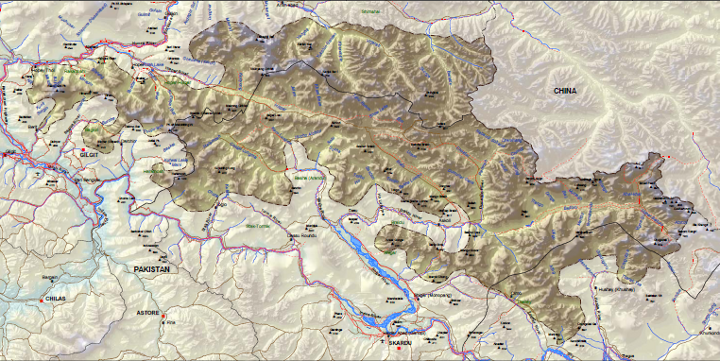

Although the population of Gilgit-Baltistan is relatively small, it is linguistically and ethnically very diverse. Twelve different languages tell us about the long, turbulent and rich history of the area, which manifests itself in numerous important cultural heritage sites.
However, for the people making a living in this part of Pakistan, remoteness from important education and health services and centers of commerce are the downside of the wild and untouched beauty of the province. Cash income sources are rare and in this harsh and dry mountain climate even subsistence agriculture is a feat and sickness can easily lead to serious chronic illness or death. All of these properties make people from Central Karakorum National Park living constantly at the brink of poverty.
No surprise that the Poverty Reduction Strategy Paper (PRSP) of the Pakistan Government from 2004 lists rural regions in Gilgit-Baltistan province as having the 3rd highest poverty rate in the country, just after FATA and NWFP.
Gilgit-Baltistan has a unique and critical role to play in the sustainable development of Pakistan. Although the province spans a relatively small geographical area, it hosts the vital catchment of the Indus River, a key water source for Pakistan’s irrigated agriculture and hydroelectricity production. Gilgit Baltistan also hosts the nation’s most important natural forests, extensive mineral reserves, and a wealth of biodiversity. The dramatic scenery, some of the world’s highest mountains and the rich cultural and archaeological heritage make Gilgit-Baltistan one of the most visited tourist destinations in the country.
The Central Karakoram National Park (CKNP) was officially notified as National Park in 1993. There is a tremendous pressure on the natural resources due to traditional usufruct rights of the local inhabitants, coupled with the additional need of visitors to the area. Unsustainable resource use and tourism practices are viewed as the key threats faced by the local ecosystem.
Governmental and non-governmental organizations have been working at the local scale for over a decade in order to improve the economic, social and environmental situation of CKNP area. All the interventions have a common objective, but no framework that coordinates the different activities and strategies. International organizations and tourism companies don’t have a legislative framework of reference, as the only law on parks is the Northern Areas Wildlife Preservation Act of 1975, which is not very effective.
To tackle these deficits and achieve a better coordination of the different interventions towards the realization of CKNP, the project “Participatory Management and Development of Central Karakoram National Park (CKNP)” had been approved in June 2007 by the Northern Areas Administration; this 5 year initiative is supported by the HKKH Partnership Project, WWF Pakistan and the Karakoram Trust Project. The CKNP partners have been cooperate in the implementation of activities according to the repartition of responsibilities agreed in the CKNP project document. However, two of the key projects: Karakorum Trust and HKKH Partnership Project, are being concluded and due to a lack of funding the PC-1 activities will have to be reduced substantially or dropped entirely. Particularly the capacity to implement CKNP regulations and manage the (future) park must be ensured if the CKNP planning process is to be successful, which is considered a key factor for economic and livelihood development of communities in CKNP bufferzone. For this reason the SEED project will conclude the PC-1 activities related to capacity building for CKNP directorate.
This is where the SEED project takes off…
SEED project intervention
Realizing the close interrelation between poverty alleviation, social and economic development for local people, environmental research and conservation of the unique natural beauty of the area, the SEED project aims to catalyze an integrated social, economic and environmental development, including the realization of Central Karakorum National Park.
With this aim, the project operates in compliance with the priorities defined in Implementation plan for the Agenda 21, developed at the World Summit of Sustainable Development in 2002 to achieve the reduction of poverty and support the sustainable development of mountain ecosystems:
“An integrated approach is needed for conserving, upgrading and using the natural resource base of land, water, plant, animal and human resources. In addition, promoting alternative livelihood opportunities, particularly through development of employment schemes that increase the productive base, will have a significant role in improving the standard of living among the large rural population living in mountain ecosystems. (…) Specific information on ecology, natural resource potential and socio-economic activities is essential. A given mountain slope may include several climatic systems – such as tropical, subtropical, temperate and alpine – each of which represents a microcosm of a larger habitat diversity. There is, however, a lack of knowledge of mountain ecosystems.”
For the past 20 years, Ev-K2-CNR has been supporting Gilgit-Baltistan with scientific expertise, through community development, improvement of the tourism sector, conservation of cultural heritage and facilitation of small businesses in collaboration with many partner organizations and departments from Italy, Pakistan and Gilgit- Baltistan itself.
Finally, Ev-K2-CNR has the opportunity to catalyze these experiences in different sectors and extensive networks in a holistic large-scale project that will make a real difference on the ground, for local people, visitors to the area, the economy, but also for the areas’ wildlife and the conservation of its unique beauty of global relevance.
In the SEED project Ev-K2-CNR was fortunate to find the right partner for this venture. Ev-K2-CNR and Karakorum International University (KIU) share a common vision and approach and the university is truly native to Gilgit- Baltistan. KIU’s mandate is to support the development of the Gilgit- Baltistan province by imparting knowledge and scientific education to the local youth, in order to harness their skills and expertise for the socio-economic and environmental development of their own homeland. In this respect, the collaboration with Karakorum International University renders the SEED project intrinsically sustainable.
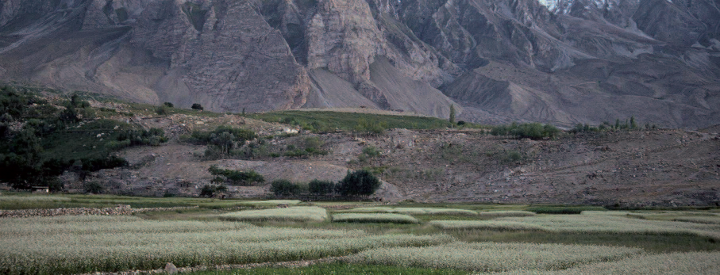
Specific Objectives
- Building a strong, intrinsically scientific CKNP management: the SEED project will contribute to the finalization and implementation of a management plan for Central Karakorum National in a threefold way:
· Establishing and extending key baseline data for the development of regulations and zoning to be developed in the framework of the management planning process and establishing a mechanism to feed this information into the management planning process
· Building the foundation for the implementation of the management plan at the community level by creating local institutions, testing, documenting and mapping best sustainable local natural resource management practices
· Building a structure and creating the capacity for the development and implementation of the management plan according to contemporary protected area management approaches and practices
- Improvement of local livelihoods and well-being; The SEED project will focus its support on livelihood assets and improvements of local people’s wellbeing in and around the park, ensuring that they are not in conflict with, but support the park’s conservation efforts. The project will address local communities’ basic needs, regarding health, hygiene and sanitation and contribute to increased livelihood security, foremost through supporting diversification of cash income sources of households, by generating income opportunities in the tourism, craft and small trade industry. But it will also help the communities to increase the yield of their crops in an ecologically sustainable way and to diversify their agricultural portfolio.
- Economic development and support for the eco-sustainable tourism sector
For conservation areas, eco-sustainable tourism is the economic sector which is most consistent and compliant with the national park’s vision, objectives and regulations. The eco-sustainable tourism sector has a large potential to generate funds which could sustainably support many local families, the park management office and open up new perspectives for local communities. Such benefits have been proven to be key for achieving consensus and foster a common agreement among the stakeholders for park management vision and regulations, a prerequisite for a successful and effective implementation of the protection on the ground. SEED project supports improvements in the quality of visitor services and installation and sustainable management of appropriate and ecologically sustainable visitor facilities. It also provides the park management with the knowledge and systems that allow it to generate information to manage visitor flows
Strategy:
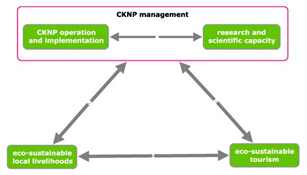
Method:
A key feature of the project’s approach is its strategy to integrate research (and capacity building for intrinsic knowledge generation) with community development and ecosystem management. Thematically, the SEED project will focus on three main interconnected areas, which can be considered the main pillars of an integrated development of CKNP from the perspective of different prevailing approaches in the fields of macro-economic development, protected area management/entitlements, livelihood development and well-being.

ACTIVITIES:
BUILDING A STRONG, INTRINSICALLY SCIENTIFIC CKNP MANAGEMENT
Management-oriented research and training:
- Develop an integrated management-oriented research program
- Conduct management-oriented environmental research and monitoring to support the CKNP
- Install and manage operations of Automatic Weather Stations in CKNP
- Assess local techniques in sustainable natural resource use and identify best practices
- Provide community-level training in natural resource management best practices
- Mobilize communities for participation in conservation and sustainable use of Park resources
- Establish an international panel of natural resource experts at KIU to support CKNP management
- Establish a faculty for integrated mountain area development studies and applied research at KIU
- Carryout afforestation and social forestry interventions in vulnerable watershed areas
Sustainable Park Management:
- Establish environmentally sustainable CKNP headquarters
- Establish/improve Park Entrance Points including camping and CKNP field office
- Establish CKNP visitor information and registration facilities
- Improve Park signage
- Recruit new staff and provide support for existing CKNP staff
- Provide working equipment for CKNP staff
- Build capacity of key stakeholders involved in CKNP management
- Establish sanitation and sustainable waste management schemes for major trekking routes, including installation of two ecological platforms at Concordia (Baltoro Glacier) for human waste
- Carry out trail upkeep and maintenance services
- Establish tree plantations at the Hispar campsite
IMPROVEMENT OF LOCAL LIVELIHOODS AND WELL-BEING
Local livelihoods 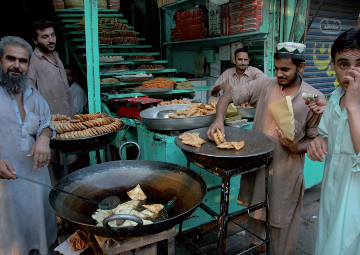
- Assess local livelihood opportunities, risks and changes
- Carry out training courses for trekking leaders and guides
- Support traditional woodworking craftsmanship
Health, education, basic facilities
- Improve/install water supply schemes for communities
- Implement measures to improve water quality
- Build capacity of local administrations in water quality and sanitation control
- Conduct teacher training courses
- Provide modern teaching aids for local schools
- Improve facilities/infrastructure of local school buildings
- Establish a health-service network for Braldo-Shigar
- Improve capacity of Lady Health Workers (LWHs) and Trained Birth Attendants (TBAs)
- Improve higher education facilities at the KIU campus by installing a water supply scheme and a renewable energy supply and improving access ways
- Raise community-level awareness on key issues, including: hygiene and health, the importance of education ; gender inclusion; improvements in community organization; and the community’s role in CKNP management
ECONOMIC DEVELOPMENT AND SUPPORT FOR THE ECO-SUSTAINABLE TOURISM SECTOR
Agricultural productivity
- Promote off-season vegetable farming and seedling production
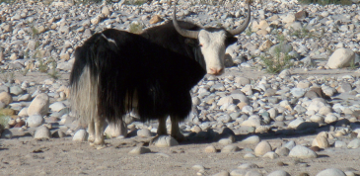
- Enable market access for local agricultural products
- Assess potential for increased production and marketing of local agricultural products
- Establish fruit nurseries and training for improved productivity and marketing for local farmers
- Improve livestock and pasture management
- Develop systems for environmentally sound, safe and hygienic production and processing of agricultural products and provide related training
Economic development
- Economic development
- Develop trophy hunting programs
- Promote safe gemstone mining techniques in the CKNP area
Promotion of cultural heritage and eco-sustainable tourism
- Assess and map historic settlements and places of architectural value
- Assess and promote cultural heritage of CKNP and buffer zone
- Renovate traditional architecture and village-layouts in Askole
- Establish a cultural/historical museum in Askole
- Develop Askole in relation to infrastructural improvements of existing campsites
- Identify and promote cultural heritage-trekking routes
- Improve hospitality services in terms of quality and social / environmental awareness
- Carry out sustainable solid waste cleanup campaigns on major trekking routes
- Engage local media to promote public awareness of CKNP
- Develop an interactive web portal for CKNP and Northern Areas
Privacy Policy e Cookies Policy || All rights reserved
Powered by Ati Comunicazione S.r.l.

